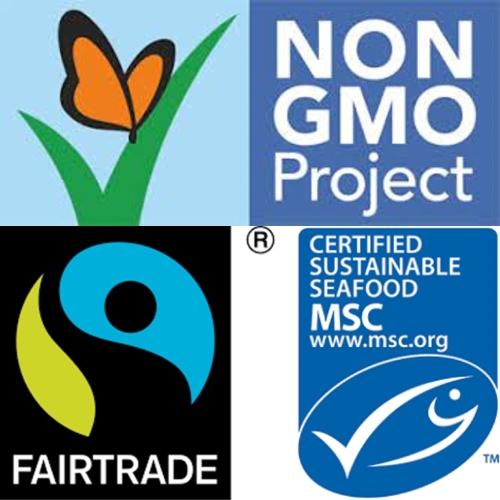Third-party certifications provide specialty food makers the opportunity to showcase what makes their products special. They also support trust and transparency between a brand and its customers.
During an education session on the Big Idea Stage at 11:30 a.m. on Jan. 23, Kristen Stevens, senior marketing manager for Marine Stewardship Council, Jade Vantreese, communications manager for The Non-GMO Project, and Kate Stritzinger, director of marketing and impact at Fairtrade America, will discuss consumer insights and trends and each organization's commitment to sustainability.
SFA News Daily asked the panelists how their respective certifications communicate credibility.
Kate Stritzinger, director of marketing and impact, Fairtrade America
With more than 30 years of experience, Fairtrade International and its U.S. branch Fairtrade America, represent a rigorous ethical supply chain certification trusted by more than 2,500 companies and found on more than 37,000 products globally. Fairtrade’s credibility is rooted in our partnership with more than 2 million farmers and workers. Producers hold 50 percent of the decision-making power in our highest governing body and are involved in all major decisions to ensure that the Fairtrade Standards are meeting the current market realities they face. Fairtrade communicates credibility by backing up our claims with rigorous social, environmental, and economic standards, third-party verification, and a label that consumers know and trust. According to 2023 consumer research conducted by independent insights firm GlobeScan, 72 percent of U.S. consumers expressed trust in the Fairtrade label.
Kristen Stevens, senior marketing manager for Marine Stewardship Council
The Marine Stewardship Council communicates credibility through data-driven, measurable impacts that prove the effectiveness of the program. The MSC is the only program of its kind that can demonstrate:
• Over time, MSC-certified fisheries improve their performance scores leading to healthier fish stocks and continued reduction of impacts on marine ecosystems.
• Ninety-five percent of MSC-certified fisheries continue to make improvements even after certification.
• There have been approximately 2,225 improvements made by MSC-certified fisheries (up to March 2023).
• The program significantly reduces seafood fraud: less than one percent of products with the MSC blue fish label are mislabeled.
Jade Vantreese, communications manager for The Non-GMO Project
The Non-GMO Project is the only third-party verification in North America for GMO avoidance and the most widely recognized food certification after USDA Certified Organic. Today over 120,000 products carry the butterfly label, representing a kaleidoscope of brands, shoppers, retailers, and industry partners who support our mission and our rigorous standards. When shoppers see our mark in the grocery store, they trust the butterfly label. We know:
• Eighty-three percent of natural shoppers are aware of the butterfly label are likely to buy a Non-GMO Project Verified item,
• Ninety-five percent of natural shoppers believe the health of the natural environment has an impact on their health,
• Ninety percent of natural shoppers want their food to be natural and they say GMOs are unnatural,
• Eighty-eight percent of natural shoppers believe food choices can help address climate change, environmental health, and biodiversity.
Related: Fancy Food Show Preview: Understanding Foodservice Trends With Mike Kostyo; FCIA, SFA to Host Chocolate Soirée at Winter Fancy Food Show

